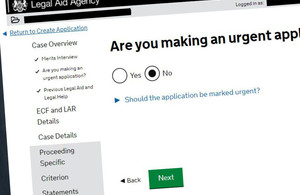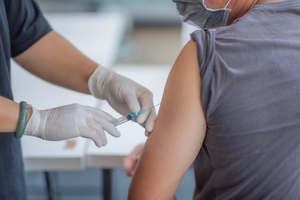- entry to the UK banned for passengers arriving from destinations across South (and Central) America, Portugal, Panama and Cape Verde from Friday 15 January at 4am
- British, Irish and third country nationals with residence rights in the UK who arrive after 4am and have travelled from or transited through these destinations in the last 10 days will have to self-isolate immediately along with their household
- move is in response to new evidence highlighting the likely spread of a new coronavirus variant in South America and to countries with strong travel links with Brazil
The government has taken the urgent decision to ban travel to the UK from several South American destinations, Portugal, Panama and Cape Verde in order to prevent the spread of a new strain of coronavirus (COVID-19) into the UK.
From 4am Friday 15 January 2021, passengers who have been in or transited through Argentina, Brazil, Bolivia, Chile, Cape Verde, Colombia, Ecuador, French Guiana, Guyana, Paraguay, Panama, Portugal (including Madeira and the Azores), Peru, Suriname, Uruguay and Venezuela in the last 10 days will no longer be granted access to the UK.
This does not include British and Irish Nationals, or third country nationals with residence rights in the UK, who will be able to enter the UK but are required to self-isolate for 10 days on arrival along with their household.
There will also be a flight ban on any countries with direct flights to the UK. These are Argentina, Brazil, Cape Verde and Portugal (including Madeira and the Azores). This excludes cargo and freight without passengers.
The decision to ban travel from these destinations follows the discovery of a new coronavirus variant first identified in Brazil, that may have spread to countries with strong travel links to Brazil.
The UK does currently not have travel corridors with Argentina, Brazil, Bolivia, Cape Verde, Colombia, Ecuador, French Guiana, Guyana, Panama, Paraguay, Peru, Portugal, Suriname, Uruguay and Venezuela, and the travel corridors with Chile, Madeira and the Azores will be closed. Anyone returning from these countries from 4am on Friday will be legally required to self-isolate for 10 days.
Any exemptions usually in place – including for those related to employment – will not apply, although hauliers who have been in or transited through Portugal (only) in the last 10 days will be exempt to allow transport of essential goods.
Passengers arriving in the UK from Argentina, Brazil, Bolivia, Chile, Cape Verde, Colombia, Ecuador, French Guiana, Guyana, Paraguay, Panama, Portugal, Peru, Suriname, Uruguay and Venezuela after 4am on 15 January cannot be released from self-isolation through Test to Release.
People who share a household with anyone self-isolating after returning from Argentina, Brazil, Bolivia, Chile, Cape Verde, Colombia, Ecuador, French Guiana, Guyana, Paraguay, Panama, Portugal, Peru, Suriname, Uruguay and Venezuela will now also need to self-isolate until 10 days have passed since anyone they live with was last in those countries.
From Monday 18 January at 4am, passengers from all destinations will also be required to present a negative COVID-19 test result before travelling to England, to help protect against new strains of coronavirus circulating internationally and to identify those who may currently be infectious.
National restrictions for England introduced on 6 January 2021 remain in place meaning everyone must stay at home unless travelling for a very limited set of reasons, including for work. This means people can no longer travel to take holidays or travel internationally unless for work or other legally permitted reasons. Those in breach of the rules face penalties starting at £200, rising to a maximum of £6,400.
The UK government is working closely with international partners to understand the changes in the virus that have been reported in these countries and we are conducting a programme of further research here in the UK to inform our risk assessments.


